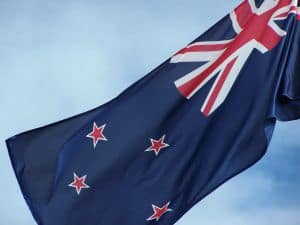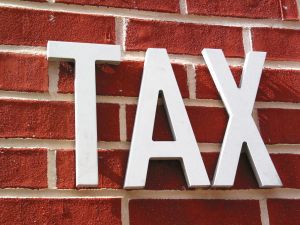This week we had an email from a reader (and well informed reader at that) asking about the possibility of governments confiscating citizens gold or even the possibility according to James Rickards that “the government won’t need to confiscate gold, they will deem that the citizen has made an unfair windfall profit and impose a 90% windfall profit tax. Keep in mind that NZ, Aus, UK tax authorities all have agreements with each other.
My question to you is that given the very strong possibility that the US govt will ban US citizens from holding gold in the near future and the likelihood that this will in turn lead to the allies (UK, Oz, NZ, Canada etc ) following the same policy….what steps can gold holders take to mitigate the risk of seizure or worst still a 90% windfall tax (as suggested)???”
We have written about the topic of gold confiscation in NZ before: Gold confiscation – Could it happen in New Zealand? In that article we did mention the possibility of a tax on profits of the sale of gold being implemented, although we didn’t directly refer to Rickards mention of the possibility of a 90% windfall tax. Rickards is well connected obviously and somewhat of a Wall Street insider, but of course that doesn’t mean he knows the future any more than anyone else. Plus the in skeptic in us says 90% windfall taxes make good headlines and sell more books!
There has been a tax on silver in the past
As we mentioned in our earlier article there is however a precedent of a windfall tax on silver. This followed the Silver Purchase Act of 1934 where US citizens were ordered to deliver their silver to the Treasury in exchange for 50.01 cents per oz or pay a 50% tax on profits if they sold it. Silver coins were excluded from this as of course there were silver coins in circulation back then and it took a few decades longer for governments to devalue paper money enough to see the end of legal tender silver coins.
For a windfall tax to be implemented first there needs to be a windfall

But first of course we need to consider that for a windfall tax to be implemented there would have to have been an actual windfall. Or rather paper currency would have to have seen significant devaluation against gold. So the purchasing power of paper money would have been largely destroyed, very high inflation would be present and there would likely be widespread disorder in society in protest to this. So given paper money would be largely worthless under this situation, would you rather hold this than physical gold and silver?
At least up until this point your purchasing power would have been protected and you would have had the chance to swap bullion for some other worthwhile asset such as land, property or stocks which likely would have devalued against gold as well, prior to the implementation of any windfall tax.
The next point to consider is that to be taxed on a windfall you would have to actually sell and it would also need to be proven that you had held gold bullion, which given that it doesn’t get reported (currently anyway), could be difficult to do..
A 90% windfall tax would likely discourage people from reporting any sale or even from selling it through official channels. And given the history of alcohol prohibition it could be argued that a black market for gold and silver would crop up for trading it.
A windfall tax in one country would drive up the price of gold in other countries
Of course such a tax would also drive up the value of gold everywhere else in the world where the tax didn’t exist. This would be an argument for holding some bullion offshore at somewhere such as GoldMoney.com or BullionVault.com. Of course the downside to these offshore methods would be that it is easier to track that you own it as governments could request records from them much easier than from individual precious metals dealers. You could even consider storing it yourself in a private vault in another stable country, but then you have to decide well in advance what country is likely to be “stable”.
Would wealthy election campaign donors allow it?
Another reason why precious metals may not be taxed heavily is that given that gold and silver are predominantly held by the wealthy more so than the lower to middle class we could make an argument that they are not going to sit back and agree to legislation that would take profits from them. Of course the counter you may come up with is, “well the wealthy only make up a small percentage of the population so it will be easy for the masses to vote to steal the profits from them”. But we must also remember that the wealthy are those that make donations to their election campaigns so will the politicians bite the hand that feeds them?
Gold seems to be returning to the monetary system rather than being made illegal to own
Another thought springs to mind that a number of US State Governments are in the process of again making it legal to transact with silver and gold coins. So this would point towards precious metals returning to the monetary system not being made illegal to hold.
There will be easier targets
It would be easier to implement the confiscation of gold from gold Exchange Traded Funds such as the GLD ETF and to nationalise mines as a means of getting their dirty paws on bullion. Or even for the US to commandeer the holdings of foreign nations that are held at the New York Fed Vault. Things would get real sticky if this happened and we don’t imagine other nations would sit back and take it.
China will be gold friendly – would the USA want to scare gold from within its borders?
Speaking of other nations, with the likes of China likely continuing to buy gold possibly with a view to eventually backing the renminbi with it, a tax or confiscation would also have to beat the Chinese out of the gate otherwise the gold will all go where it is treated best. i.e. a gold backed China bond versus a US and friends gold tax will likely attract more capital to China.
Would New Zealand necessarily follow the US lead?

As we mentioned in our previous confiscation article we need to look at history here in NZ and can see that confiscation did not occur here previously. So we can’t guarantee that our government would necessarily follow along with what the USA did. If it did, legislation would have to be passed (unlike in Australia where it already exists and would just have to be re-enacted) so you could possibly have time to sell before this occurred and to exchange bullion for other assets of value. The same argument could be made for the implementation of a windfall tax. Also would NZ necessarily align with US over China where our greater long term economic prospects may be?
What can you do to mitigate the risk of confiscation or a windfall tax?
That governments will continue to do what they do best and steal from one citizen to give to another is a given. So what can we do to protect ourselves or at least to mitigate the risk of confiscation or a windfall tax on gold?
• Buy physical gold/silver not paper gold.
• Don’t store it in a bank vault – choose private independent vaults.
• Make sure you have actual access to where it’s stored and can get to it easily.
• You could consider holding some offshore. Of course this depends upon your net worth and how much bullion you have as to whether this would be feasible.
• Hold silver as well as gold in case only one is subject to a change of laws. Some argue to consider platinum as it would be even less likely to be touched. However it is not a monetary metal so while it would be less likely to have a tax slapped on it, it could also be less likely to perform as well as gold and silver in a monetary meltdown.
In conclusion
This is a big topic and no one knows the answer – (even Wall Street insiders and Currency Wars authors!)
But we need to be vigilant and at the end of the day if things get bad enough in any country we may wish to vote with our feet and leave for safer and less tax heavy climes. Of course to do this you need to have money in order to settle elsewhere.
So until (if/when?) a gold tax comes, will you take the risk of keeping your money in a bank devaluing year after year and with the possibility of bank failures?
Or do you instead back that gold (and silver) will continue to hold its purchasing power, keep your eye’s and ears open for any gold negative legislation, and look to transfer into a beaten down asset at some stage prior to this?
In our (obviously biased!) view the 2nd is a possibility, the 1st point of devaluation is almost a certainty so we’ll stick with bullion over cash but keep our eyes open for gold negative legislation. And of course if your net worth allows it, do as Doug Casey says in this article and diversify geographically and own some property and assets offshore. Somewhere you’d be quite happy to retire to and even try and get a 2nd passport. None of this is easy to do of course, but in times when government meddling is only likely to increase we may not have any better or easier options.
If you’d like to know the exact process for selling gold and silver see: Sell Gold & Silver Bullion, Bars or Coins



“Don’t store it in a bank vault – choose private independent vaults.”
Can you recommend any private independent vaults in NZ?
Yes there a few across the country that we know of:
Guardian Vault – Auckland City and Wellington
Space Station Storage Security Deposits – Parnell, Auckland
Vault NZ – Dunedin
Hope that helps!
Pingback: Long term view of gold in NZD | Gold Prices | Gold Investing Guide
Pingback: Reader Question: Why is Gold More Valuable Than Worthless Paper? | Gold Prices | Gold Investing Guide
Fortunately I took my gold to fund my recent overseas trip and had a great time. I didn’t realise I should have kept the receipts!
Pingback: Don’t Dismiss the Possibility of Gold Confiscation | Gold Prices | Gold Investing Guide
Do we already pay sort of a currency fluctuation tax on selling gold in New Zealand?
I had to get out of investing in the US stock market because of idiot foreign investment tax changes here in NZ.
I was told investing in Gold is just like investing in a currency – so you have to pay tax on any gain once you sell – is this right?
Hi Mike,
It would be fair to say this is somewhat of a grey area. We’ve seen no mention specifically of precious metals in any IRD docs and also nothing in common law cases about it.
What you referring to is probably where income tax is charged when someone is a trader. Be that of shares, property, currencies (as in a Forex trader), or precious metals or anything else for that matter. While NZ has no capital gains tax,fFrom what we’ve seen it comes down to your intention when you buy something and also how long you hold it for. Was it for the purposes of making a profit to resell or not?
You could argue that this is the case with gold since it has no yield but many shares also don’t yield anything and from what we’ve seen if you are a long term holder of them there doesn’t seem to be tax to pay on the profits of selling them some years down the line. So it is probably wise to document your reasons for buying gold. In our case it is to remove some paper money from the banking system and to maintain purchasing power which is otherwise lost to inflation. We have no set plan to sell.
Of course we are not accountants or lawyers and so don’t take our word for it. But I imagine you could get differing answers depending on which lawyers/accountants you ask too!
The IRD seems to have gone after people who have regularly flipped houses for sale – but they are likely much easier tracked (and more numerous) than purchasers of precious metals. So we’d imagine precious metals holders would be a fair way down the list to be targeted. As much because it would difficult to know who they are.
Hope that helps a bit at least.
Pingback: Privacy: Are purchases of gold and silver in NZ reported? | Gold Prices | Gold Investing Guide
Pingback: Capital Gains Tax on Precious Metals in New Zealand - Is There Any? | Gold Prices | Gold Investing Guide
Pingback: When Gold Is Declared Illegal -